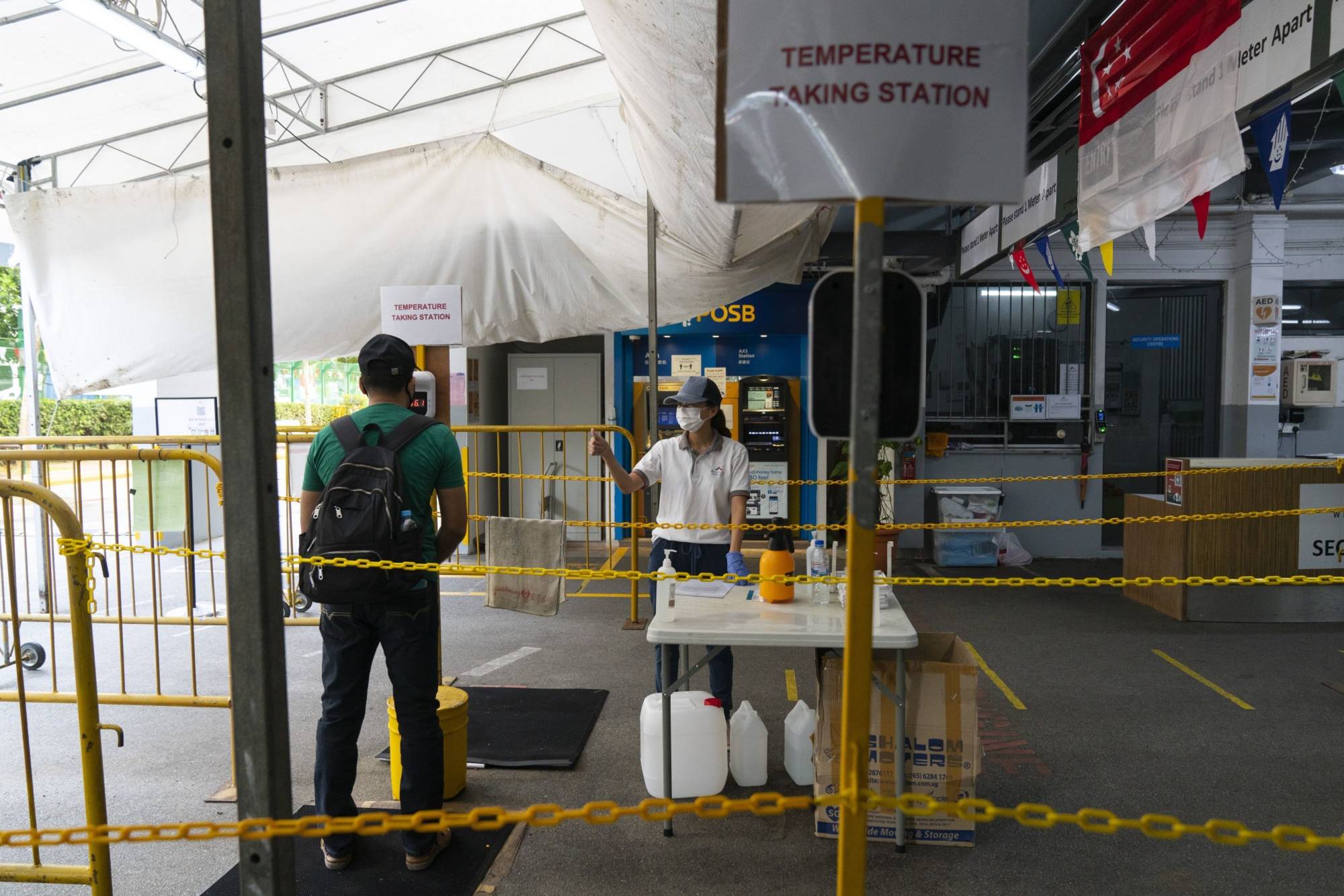It’s been a year since migrant workers in Singapore were confined to dormitories to prevent an outbreak of COVID-19 in their ranks from spreading across the island. Now, weeks after new cases among the laborers dropped to almost zero and thousands have received vaccinations, some wonder how long it will take for restrictions to end.
"I don’t have any freedom to move around ... only allowed to leave from the dorm to worksite, dorm to worksite,” said Arif, a 30-year-old worker from Bangladesh who has been living in housing on the same construction site since the pandemic began. "Right now my only feeling is I want to go home to see my family, but I haven’t got the vaccination. I worry if I go home, I cannot come back.”
The 320,000 migrant workers living in dormitories who help build and service the city came into the spotlight last year as COVID-19 raged through their packed buildings, threatening to wreck the nation’s efforts to control the virus. The news turned a spotlight on their living and working conditions, which some labor organizations had been warning about for years. With a vaccine drive now in full swing, most dormitory residents remain largely segregated from the rest of the population, with permission for only limited trips away from their workplace or living quarters.

















With your current subscription plan you can comment on stories. However, before writing your first comment, please create a display name in the Profile section of your subscriber account page.